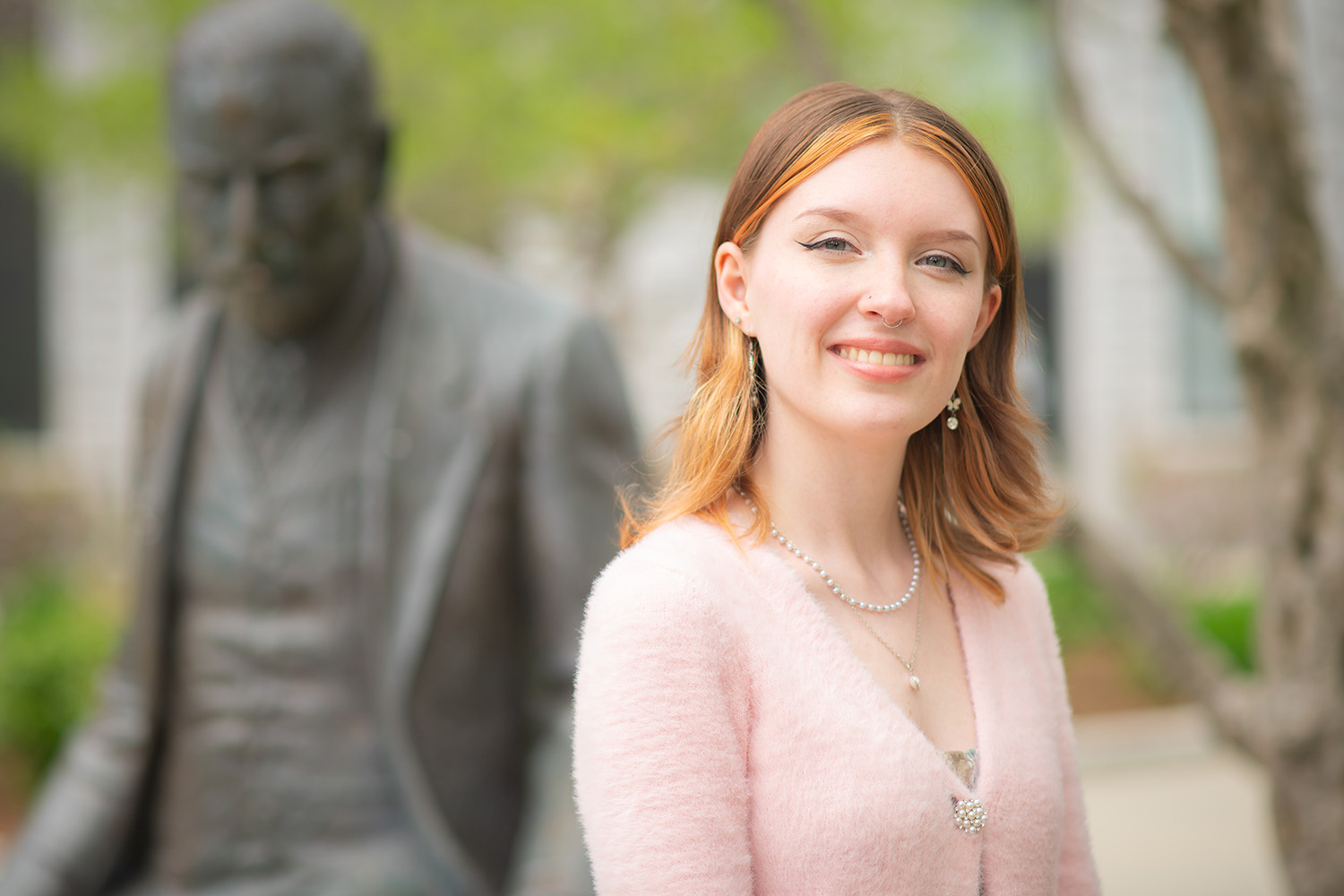Senior Spotlight
Katie Healey ’24 is ready to help others thrive

After graduating from Clark on May 20, Katie Healey ’24 will put her psychology degree into action. She’ll be starting a job as a dialectical behavioral therapy (DBT) caseworker, helping young adults who are dealing with serious mental health concerns, such as first-episode psychosis or a borderline personality diagnosis.
The Mansfield, Massachusetts, native is herself a graduate of the Thrive Behavioral Health teen DBT program and was tapped to apply for the new position when she participated in an event there as an alumna. “They want people on the team who have gone through the program and, when making decisions, know what it’s like to be on the patient side,” she says.
She won’t be able to provide mental health counseling until she has a master’s degree, something she’s considering.
“I need to know what I want to do first,” she explains. Areas of specialization can range from social work to treating patients dealing with eating disorders, schizophrenia, and other diagnoses. “If I’m going to invest thousands and thousands of dollars, I need to be 100% sure.”
Healey came to Clark knowing she wanted to major in psychology. She was especially intrigued by the statue of Sigmund Freud sitting in Red Square — one of the first photos she took on campus was a selfie with the life-size sculpture.
“He was incredibly influential in the study of psychology,” he says, “but he shouldn’t be taken out of the period in which he was writing.” She notes that psychology was an offshoot of the study of philosophy (she’s a philosophy minor) and Freud was one of the first scholars to apply the scientific method to the study of the mind.
While Healey has thrived in and out of the classroom, her Clark career had a stressful start. As a first-year student during the pandemic in 2020, Healey spent her fall semester mostly in her Bullock Hall room, taking online classes. She didn’t have a roommate, and never saw many people. “It was lonely,” she says. “I started wondering if I made the wrong decision.”
However, once COVID restrictions began lifting, she started checking out student organizations — she describes it as a sort of “speed-dating process” — and found her place on Clark’s Mock Trial team. A member for three years, she spent two as a captain. She specializes in serving as an expert witness, researching the cases and testifying on a range of scientific matters, and has won awards at several tournaments.
“I made so many lifelong friends on the team, and so many wonderful memories,” she says.
Healey has also been a Wellness Ambassador for two years. She created a harm-reduction program for Spree Day, providing a “safety net” for students who might overindulge. The program included education as well as access to adequate food and hydration on the day.
In addition, Healey is a member of Psi Chi, the international psychology honor society; served as events coordinator of the Undergraduate Psychology Committee, and was vice president of Gryphon and Pleiades, the University’s senior leadership and service honor society.
An English course called Philosophy of Horror led to Healey presenting her research on various aspects of the horror genre at three regional conferences of the Northeast Popular Culture Association. Healey was asked several times by Professor Jacqueline Morrill to return to the class to speak about disability in horror.
“She’s been a huge supporter,” Healey says of Morrill. “She’s really looked out for me and saw my passion for writing, and for literary and media analysis. She encouraged me to hone it.” Healey has also been involved in Clark’s Women in Horror Month since it began in 2022, when she ran the celebration’s art show.
Healey feels lucky to have been able to indulge her interest in horror while also studying psychology and philosophy. “My parents never wanted me to be a certain way,” she says. “They always encouraged me to be authentic, and that’s what Clark is about. Everyone here is so passionate about at least one thing, and it’s never usually the same thing that you’re passionate about. That’s the whole point of college, really.”


